NOTICE: This post references card features that have changed, expired, or are not currently available
Many, if not most, US-based flyers are focused on the airline loyalty programs of major North American carriers. There are plenty of sweet spots to be had when using American, Delta, or United miles, and I love programs like Southwest Rapid Rewards / Alaska Mileage Plan / JetBlue TruBlue as well. But getting to know some of the foreign frequent flyer programs can really help you extract max value from your points. There are many sweet spots to be found among foreign partners — whether ANA’s round-the-world awards or British Airways short-haul Avios awards or the couple of Etihad Guest sweet spots that still exist, there are values to be had in foreign programs. Among foreign frequent flyer programs, Singapore Krisflyer is a perennial favorite — and for good reason. Most paid fares on United earn 1 Singapore Krisflyer mile per mile flown, meaning that most economy-class United flyers would earn a lot more miles with Singapore than they do when crediting their flights to United. Additionally, there are a lot of other advantages to the Krisflyer program that are widely acclaimed.
This post isn’t meant to unearth new depths of the program, but rather to remind those who may be newer to the miles-and-points hobby of the advantages found in a program like Singapore Krisflyer. With growing lists of transfer programs partnering with the various bank point systems, it can be hard to keep track of the advantages of each. Today I list 6 things I love about Singapore Krisflyer and 3 things I don’t like to recap some of the highlights.
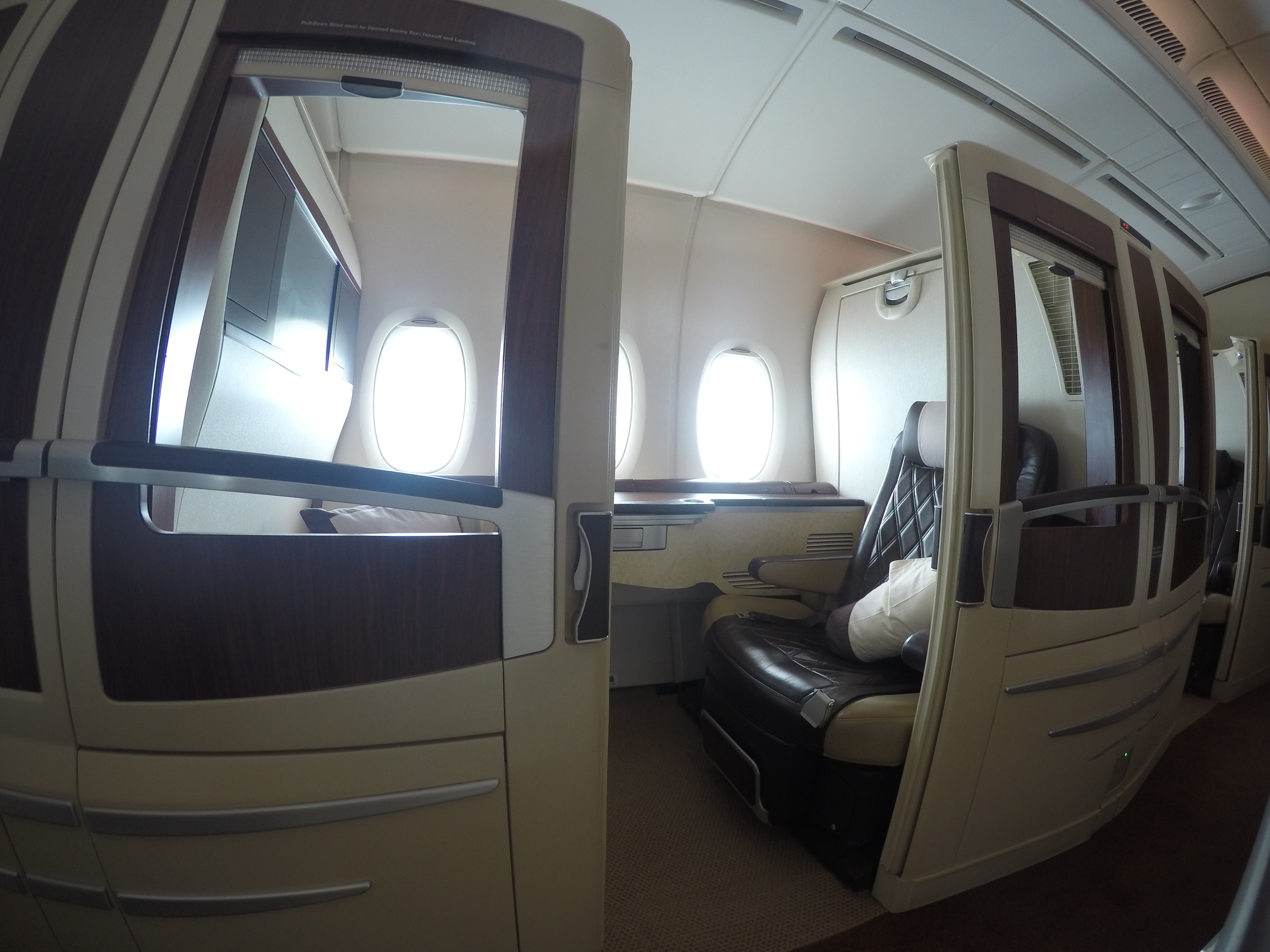
Things I like about Singapore Krisflyer
1) Transfer partners with everyone
In miles and points,, the name of the game is transferable currencies. The flexibility to be able to transfer to a number of different partners allows you to cherry pick the awards that make the most sense for you. Singapore Airlines is the ultimate free agent, partnering with everyone: Chase Ultimate Rewards, Citi Thank You Points, American Express Membership Rewards, and Starwood Preferred Guest. It is easy to accumulate a lot of Singapore Airlines miles.
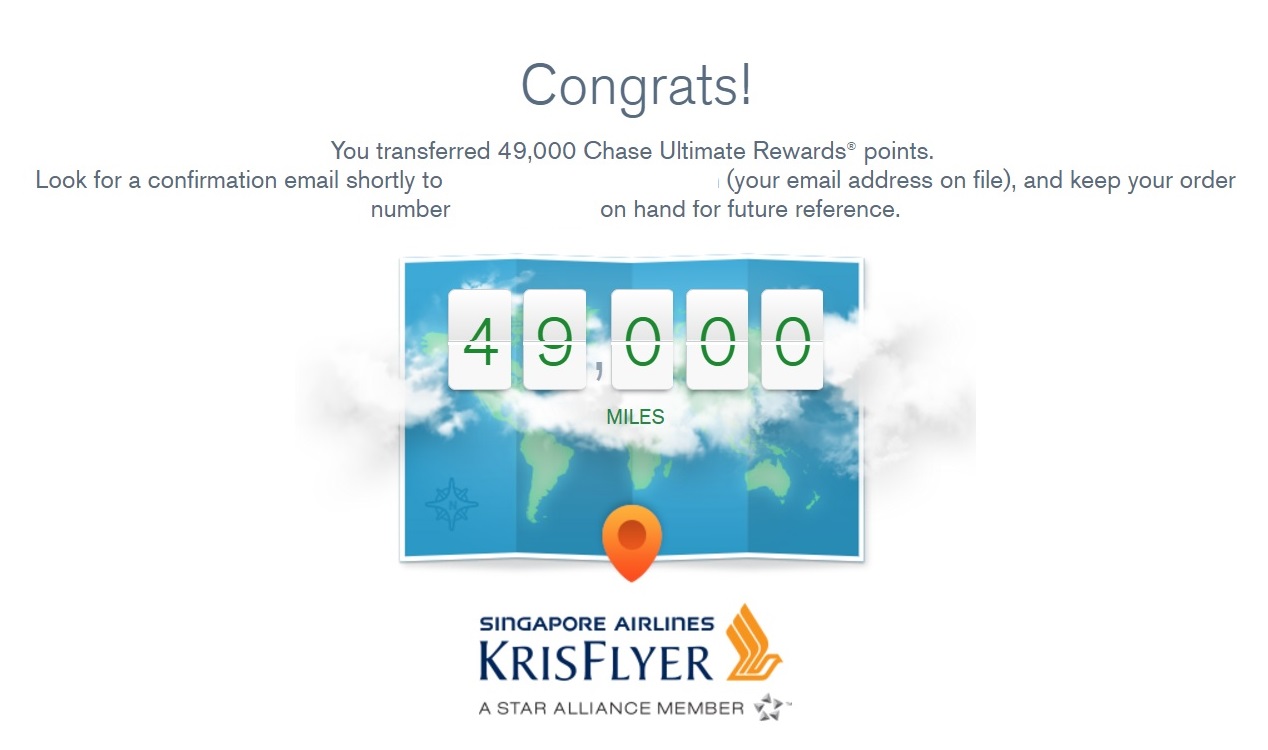
2) Cheap Change Fees
Over time, I have come to value flexibility above most other variables. I haven’t punched in to a 9-to-5 style job in nearly a decade and I hate answering the question, “What are your plans this weekend?”. I enjoy the flexibility to adapt and change plans as circumstances warrant — I don’t like being locked in.
And so one of my absolute favorite things about Singapore Krisflyer is the flexibility of award tickets. Change and redeposit fees are very cheap. Changing your itinerary costs $20 per passenger. Cancelling your ticket and redepositing your miles? $30.
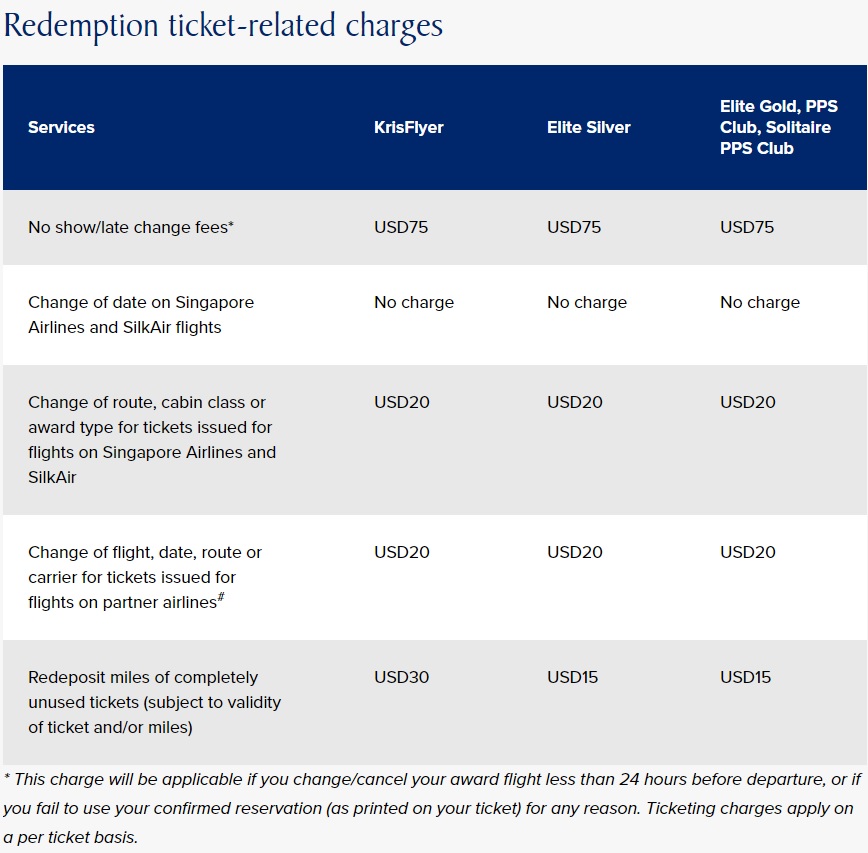
Wouldn’t it be nice if all tickets were so cheap to change? In terms of cash tickets, it’s not at all uncommon for an airline to charge exorbitantly higher change fees — if changes are even allowed at all. Singapore lets you change or cancel an award ticket up to 24 hours in advance for the prices you see above. As Singapore is a Star Alliance member, you can use your Singapore Krisflyer miles to book flights on United Airlines — and enjoy much lower fees should you want to adjust your plans. United MileagePlus will charge you $125 per passenger for a change 60 days or fewer before departure if you booked your flight after October 6, 2016. If you booked before that date, you’re looking at up to $100 per passenger for a close-in change or $200 per passenger to cancel the ticket and redeposit the miles. Ouch.
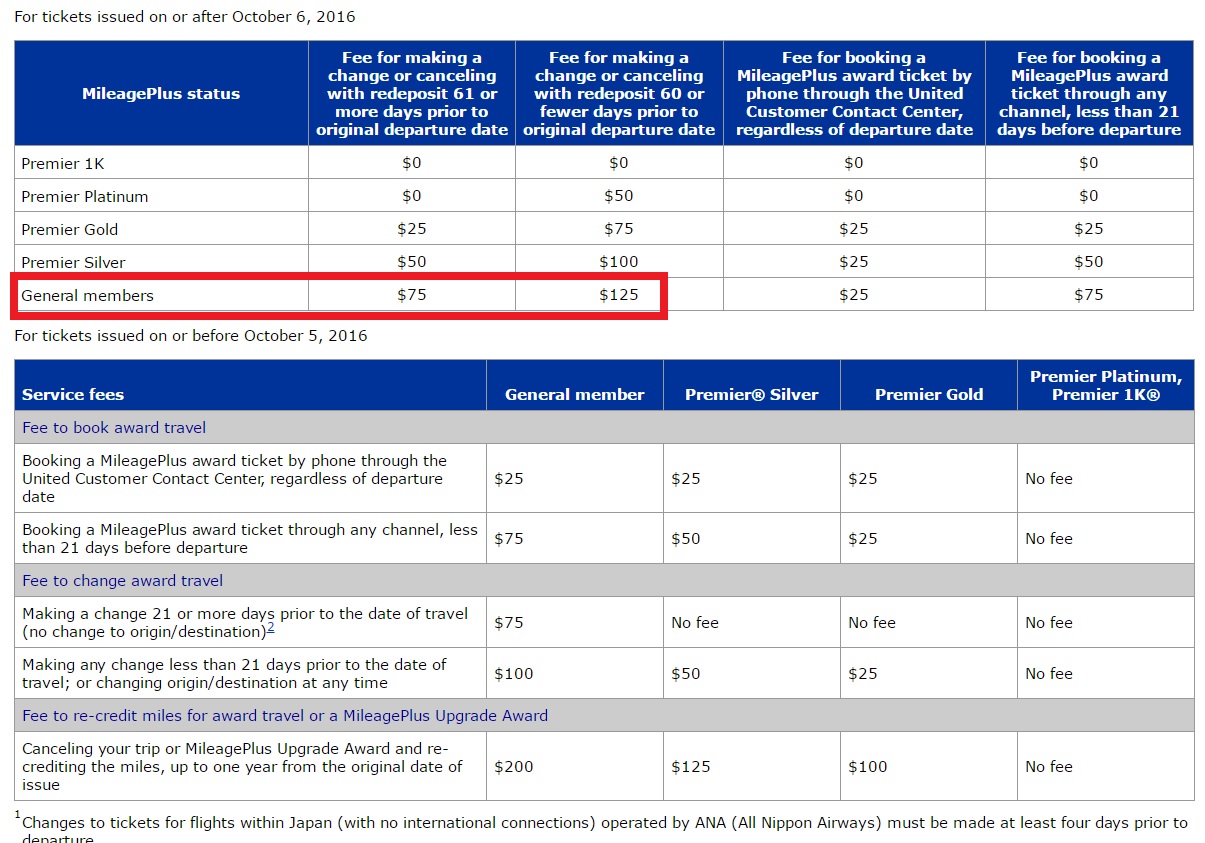
Singapore’s low fees mean that I can book a ticket without much fear of consequence if I have to change my trip. That’s huge for me. The process of changing a ticket is simple enough — I find most Singapore phone agents to be very competent. While I’ve certainly had some experiences that were smoother than others, I’ve also been off the phone in under 5 minutes on more than one occasion.
3) Super Reasonable Chart to Hawaii
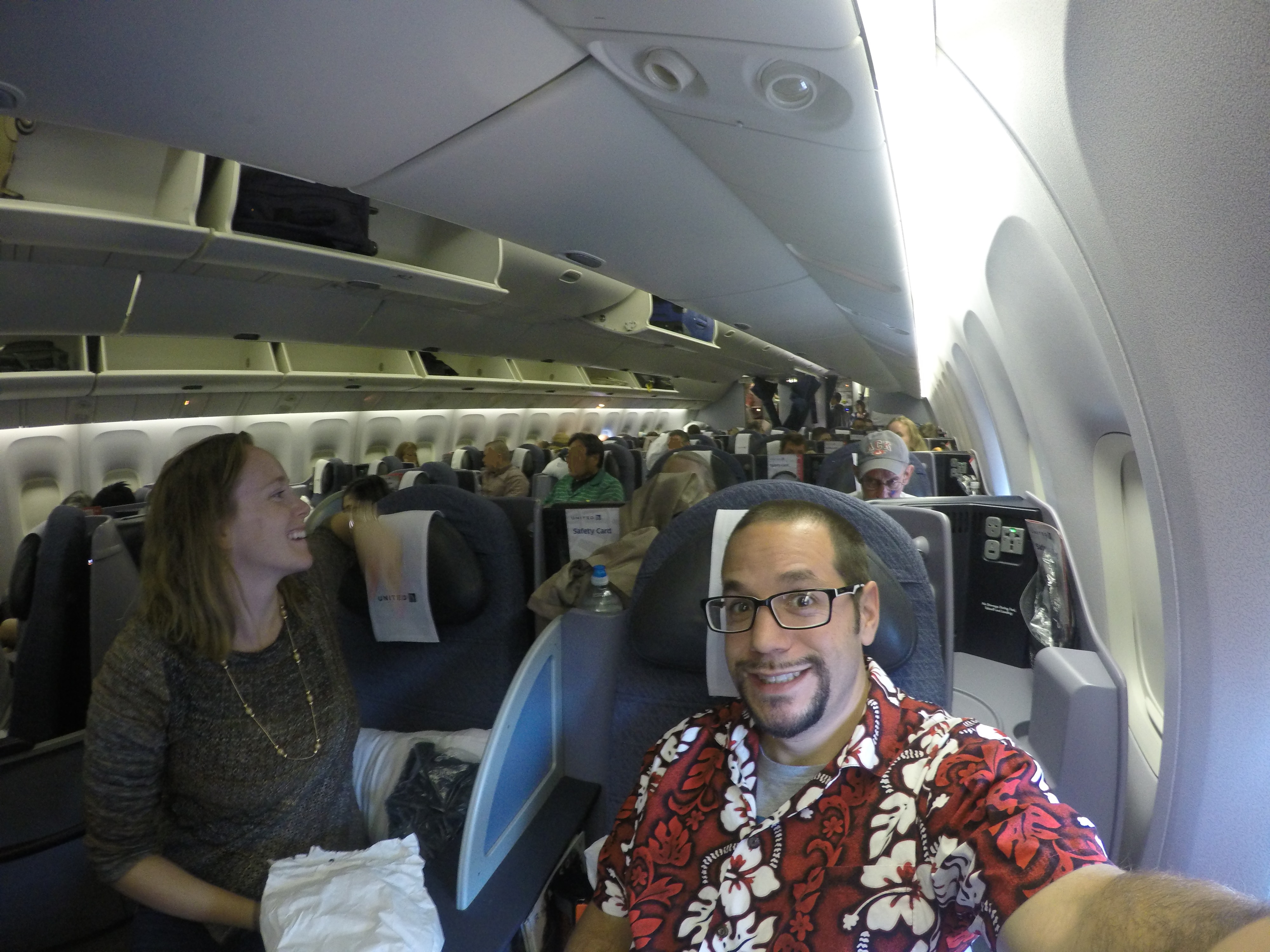
As many readers may know, Singapore Airlines offers very reasonable rates on United Airlines to Hawaii. Singapore publishes different award charts for different types of partners. Here is the Star Alliance award chart (which would apply to United). These rates are round trip — a one-way is half the cost.
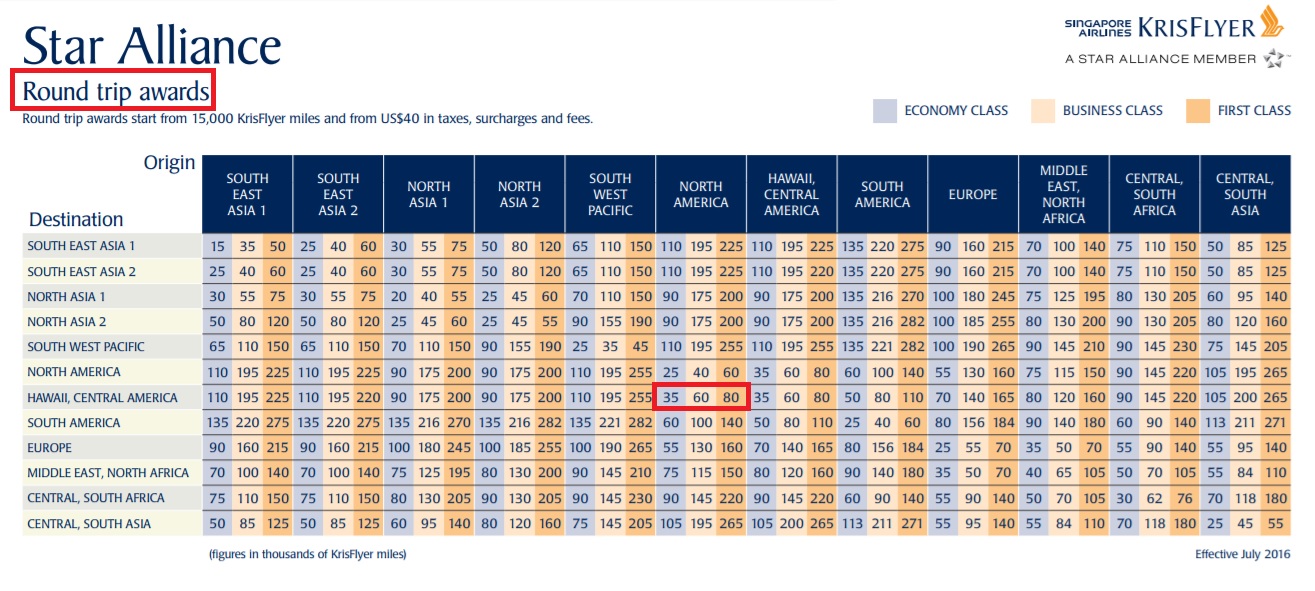
Splitting those numbers in half, you’ll see that Singapore Krisflyer charges 17.5K miles one-way in economy class (versus United’s price of 22.5K) and business class will set you back 30K one-way (versus 40K in United MileagePlus miles). I’m not aware of any 3-class United flights to Hawaii. The lie-flat seats we took from Newark to Honolulu (pictured above) were 30K miles each — a savings of 10K per passenger x 6 passengers. As both United and Singapore are transfer partners of Chase Ultimate Rewards, I could easily transfer to either program — but since Singapore charges fewer miles to book the flights and far less to change or cancel/redeposit the miles, it’s a no-brainer choosing Singapore Krisflyer.
However, it’s not all roses and sunshine for booking Hawaii awards. See #2 in the things I don’t like about Singapore Krisflyer below.
As for finding 6 business class award seats on the direct flight from Newark to Honolulu, that was some magic I couldn’t repeat if I tried.
4) Singapore Airlines First Class
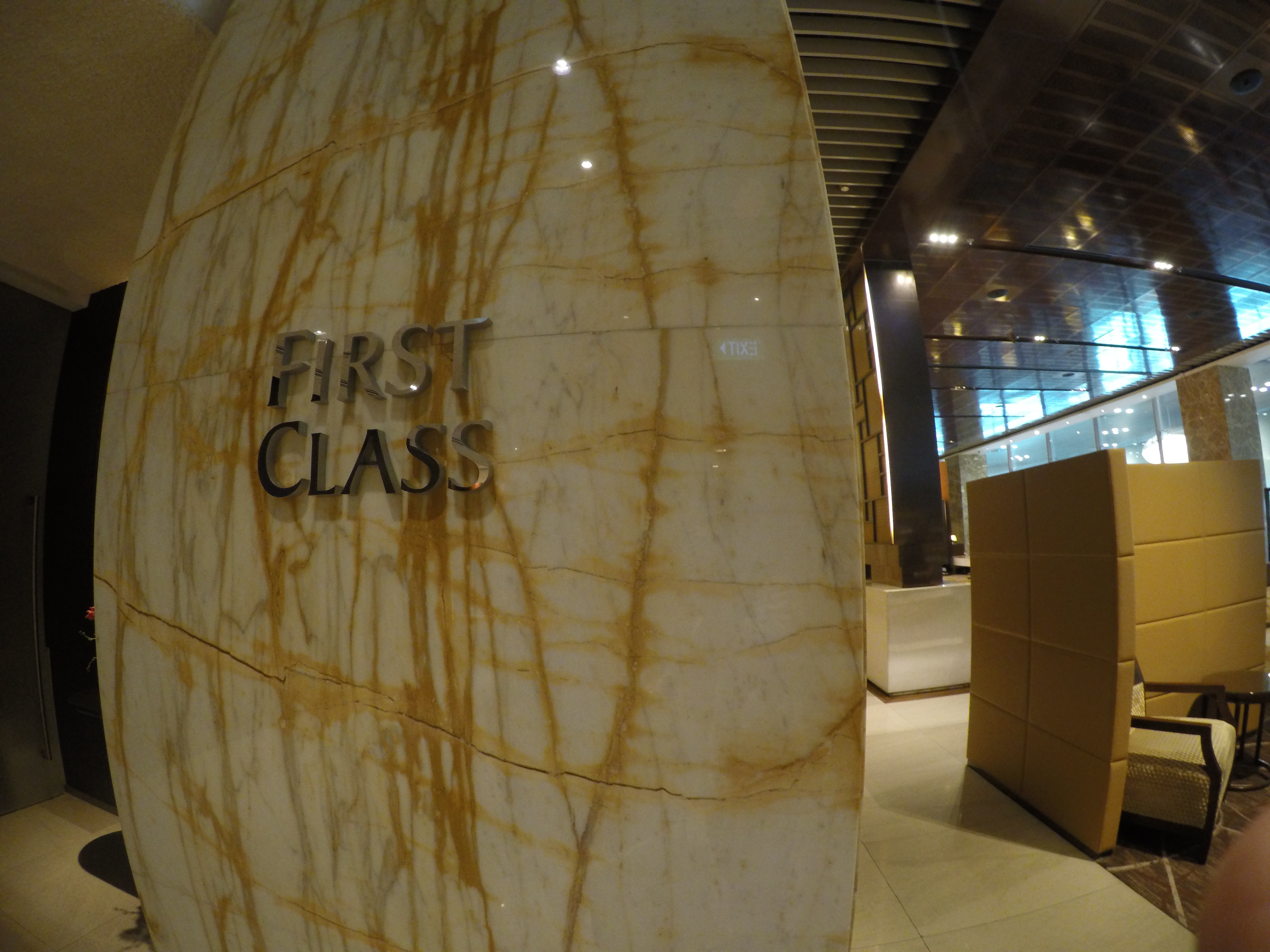
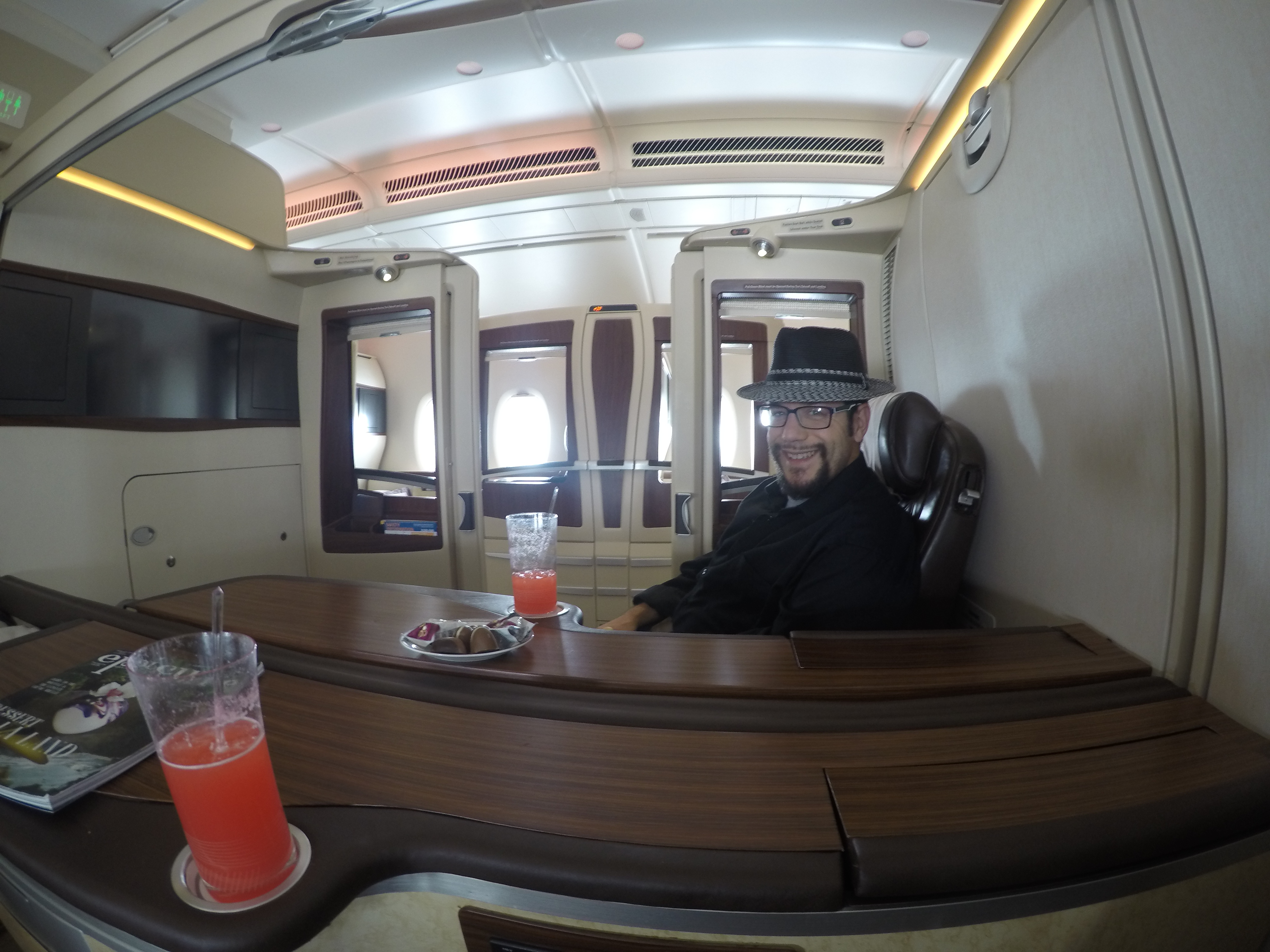
In the premium cabin world, there is a lot of hype. Whether it’s a private suite in the sky or an exclusive lounge or a private chauffeur to your final destination, it can be hard for the experience to live up to the expectation. In my opinion, Singapore Airlines lived up to it and then some. No, I didn’t love everything about Singapore first class. The suite as seen above isn’t as “blingy” as Emirates
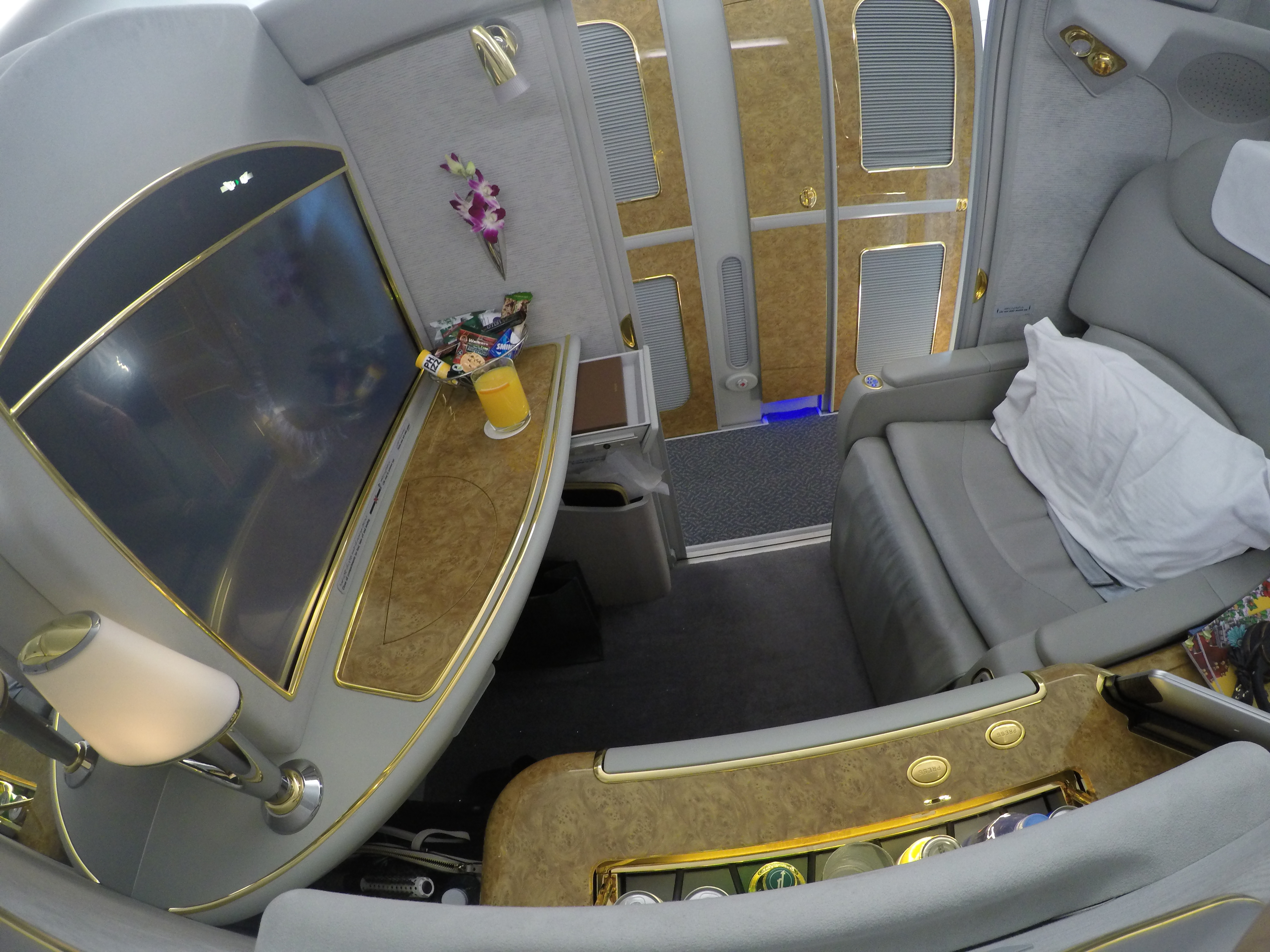
But the space is unreal. Two people could easily sit across from each other for dinner or even next to each other on the same seat to catch a movie.
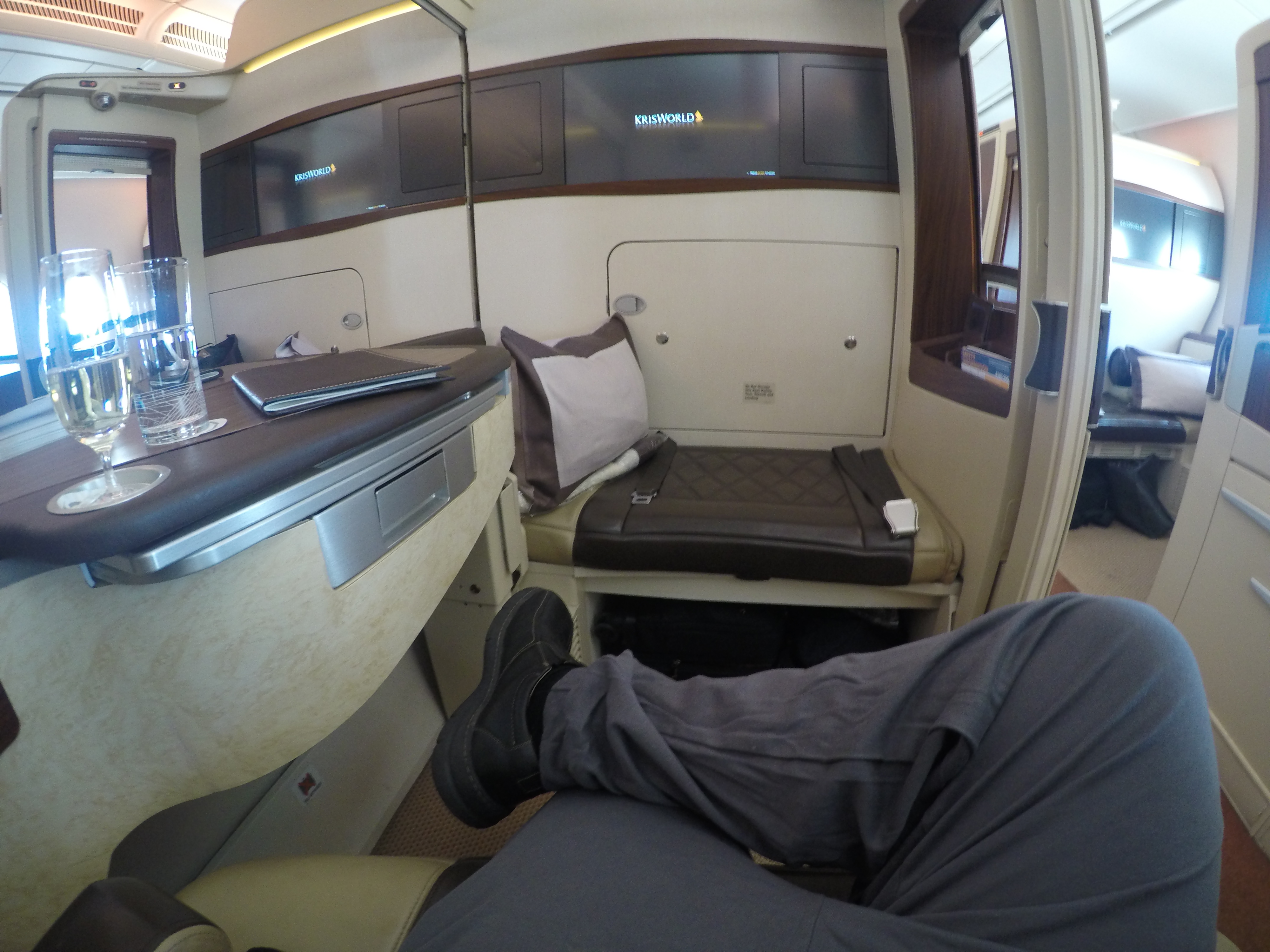
And before discovering miles and points, I don’t think I ever thought I’d sleep in a double bed in the sky.
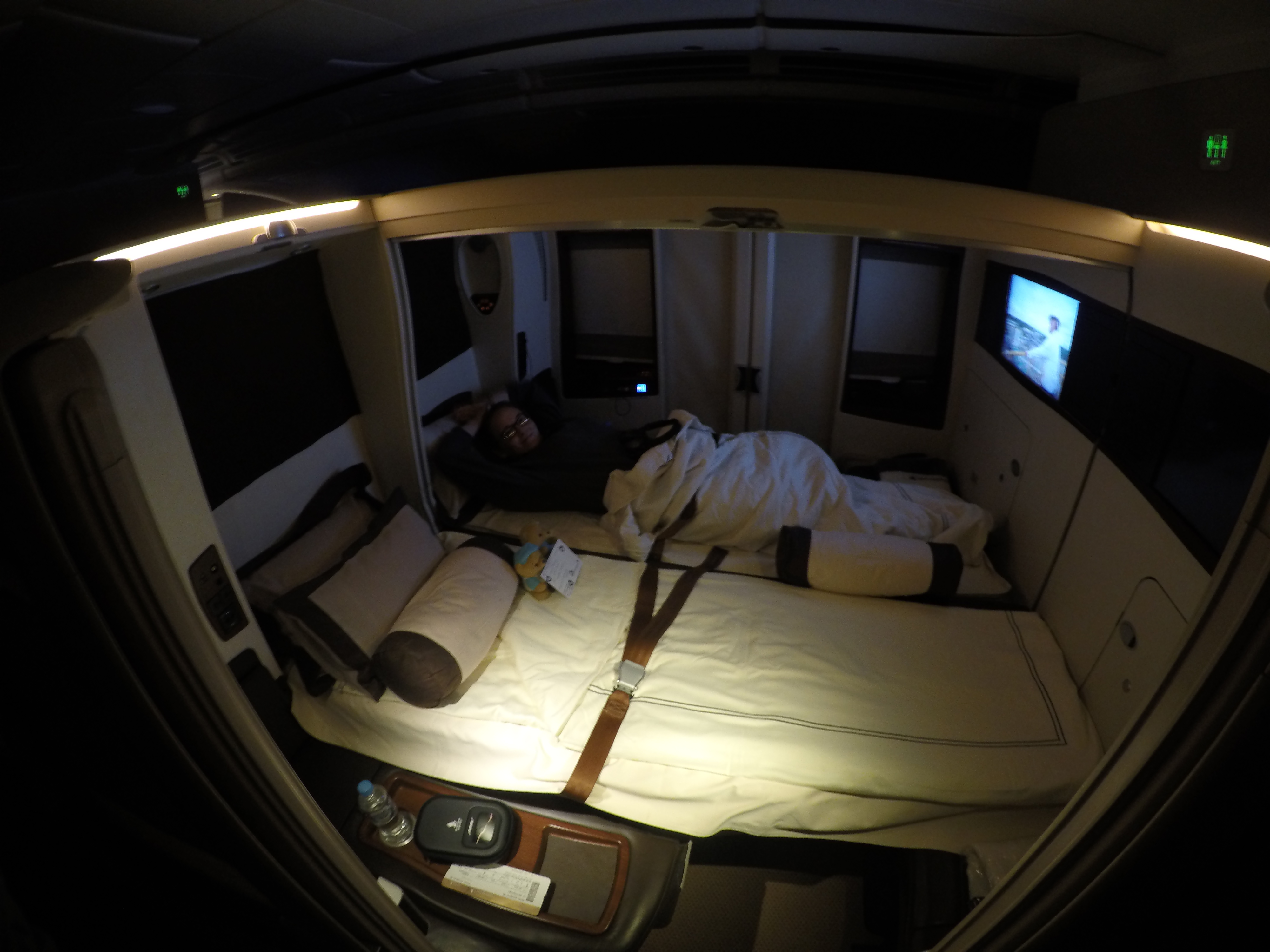
But it’s not just the accommodations — it’s the service. Hard to see in the pic, but the flight attendants found out this was our first flight in suites class and they made sure we got the full experience — with teddy bears, a signed postcard, and a bunch of Singapore Airlines swag.
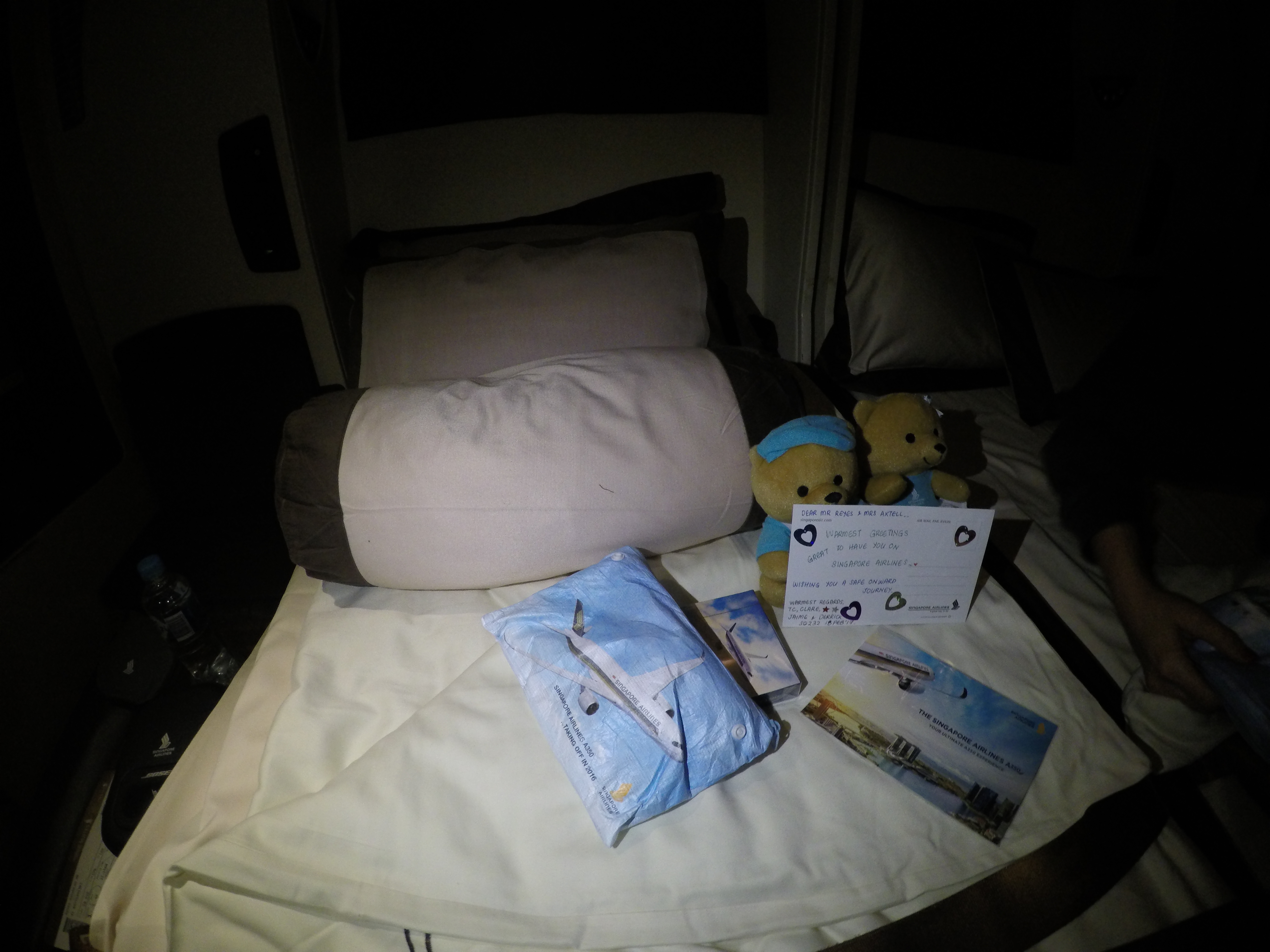
Of course, not all routes have suites class. In fact, New York is the only city in the US served by the Singapore Airlines A380. Not to fear — first class on their 777 isn’t too shabby, either.
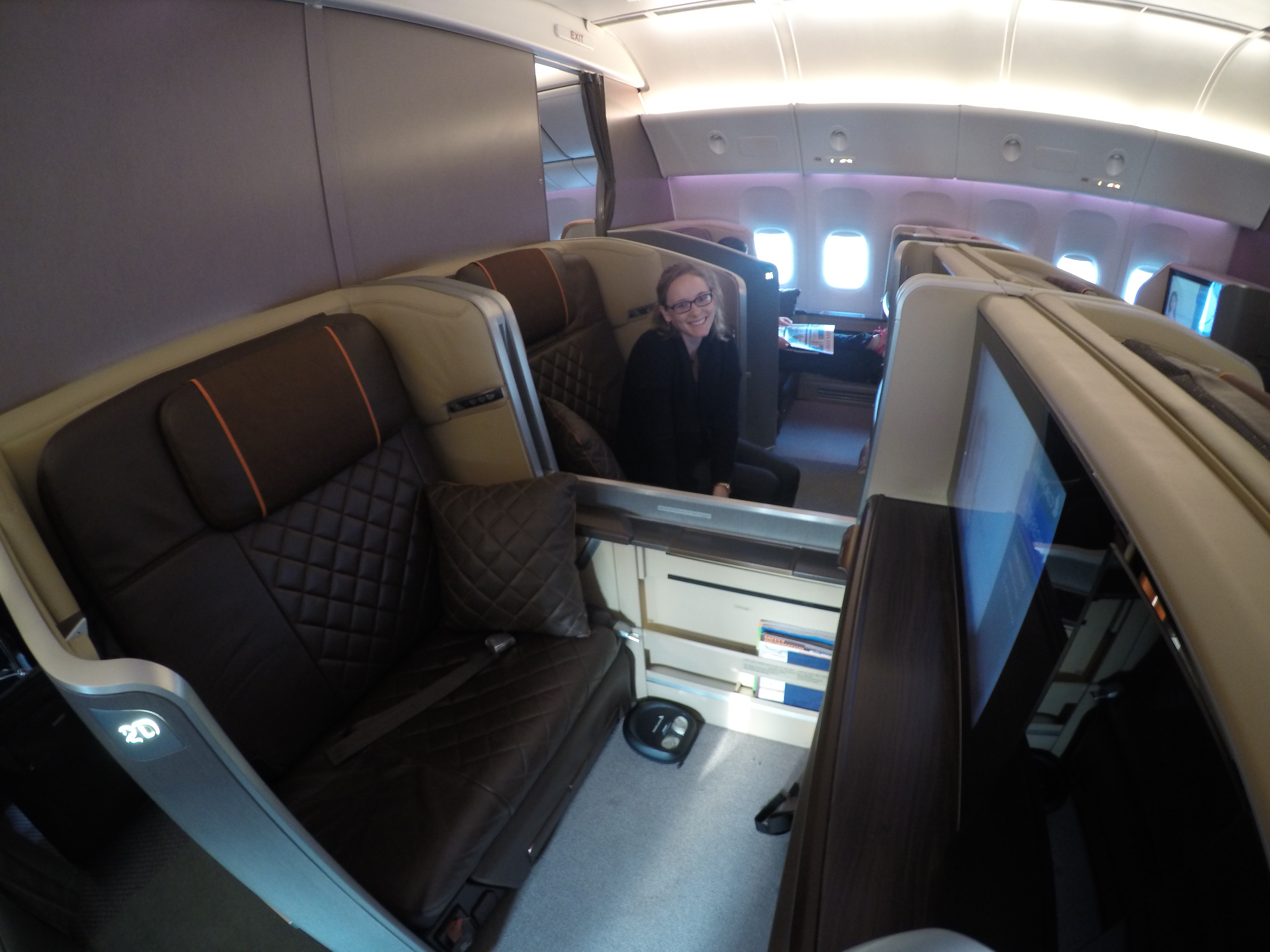
Again, the seats were wide enough for two and I found the stitching particularly comfortable. I didn’t like the fact that you can’t recline all the way (Singapore’s seats are designed differently than most in that the back of the seat flips down to make the bed rather than the seat simply reclining into a 180-degree state). But if you’re after plenty of elbow room, this is the way to fly. And I’m not much of a drinker — but how many times in your life will you get to choose between the Dom and the Krug? In actuality, nevermind the champagne — flight attendant insisted that I try the Australian Shiraz they were serving, and it was phenomenal. I’m sure I have a picture somewhere, though I can’t recall the name right now. It was good enough to overshadow my Book the Cook selections.
All that said, I actually haven’t yet flown Singapore Business Class. It’s been widely written that the differences between the two are minimal — and a walk through the business class cabin on the 777 confirmed that to be the case. While I did love Singapore’s First Class and wouldn’t hesitate to fly them again, I wouldn’t hesitate to fly their business class if in a crunch for miles. Purely from the standpoint of the seat, which is likely the most important part of the experience, differences appeared slim between first and business class on the 777 anyway.
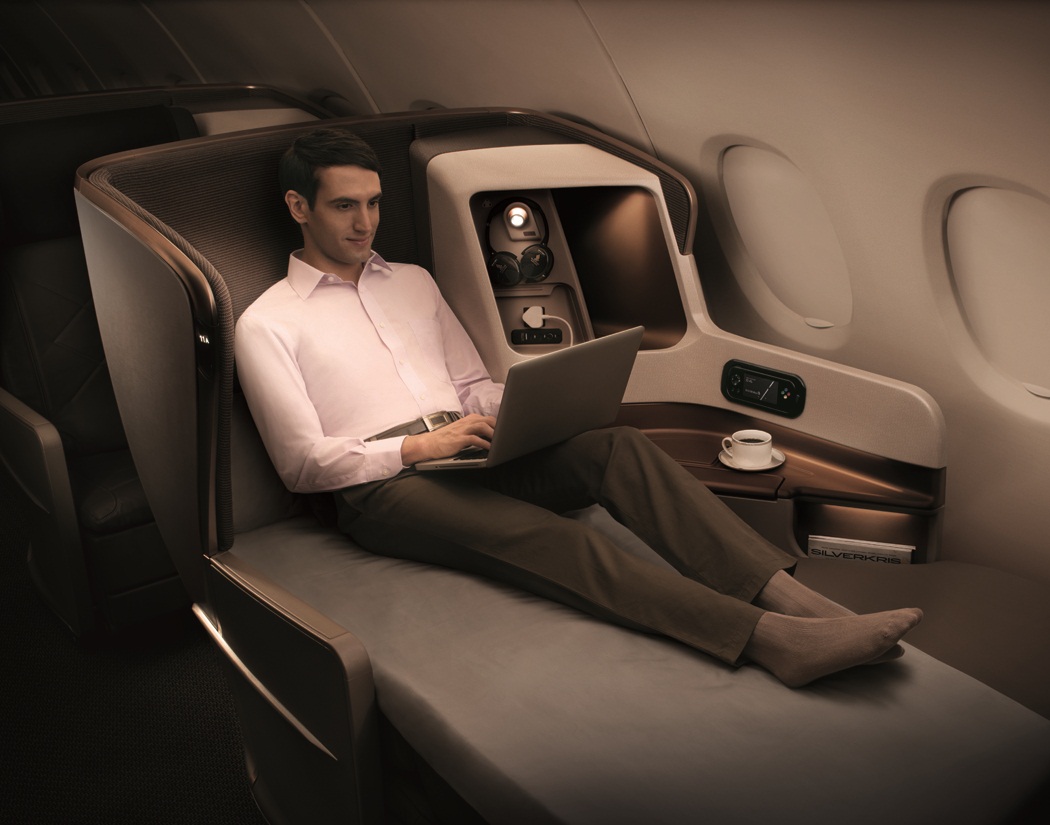
5) Easy wait-listing of awards
Unfortunately, Singapore’s first class cabins are small (and shrinking in new configurations). That means that there aren’t a ton of seats — so it isn’t always easy to snag the award you’re after. However, Singapore Airlines makes it pretty easy to waitlist for an award. If it is possible to do so, you’ll see “Waitlist” above the number of miles required to book:
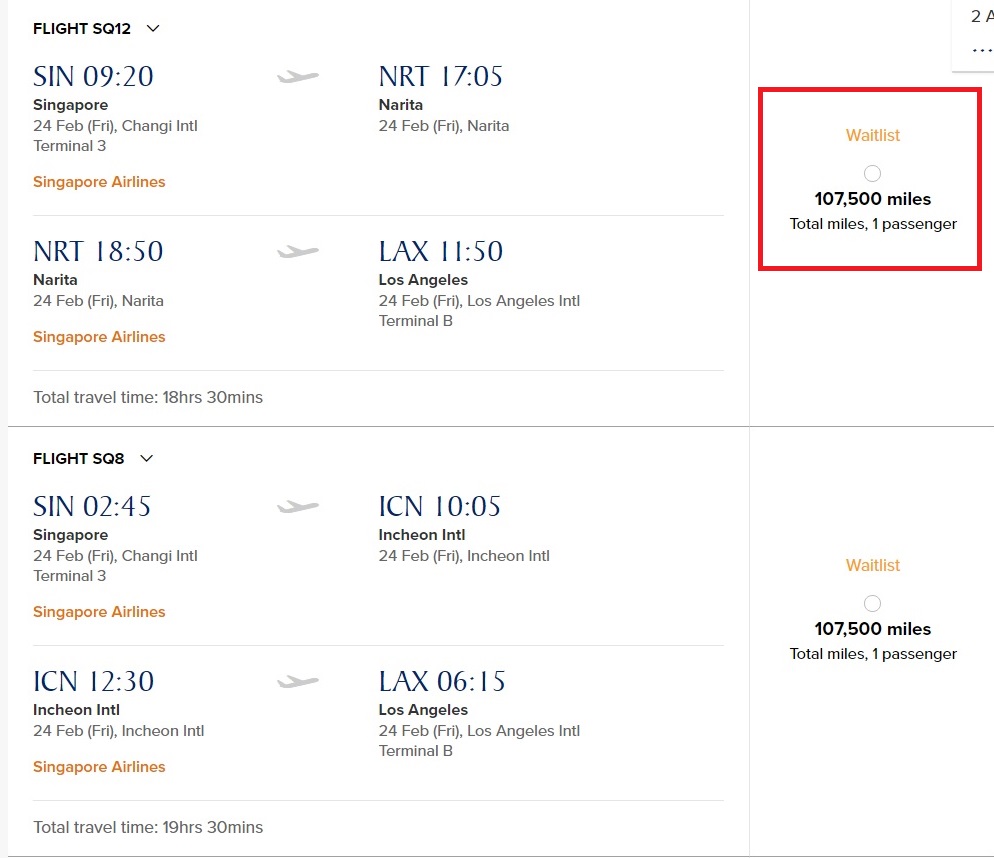
Unfortunately, the bummer here is that you need to have the necessary number of miles to book the ticket in order to waitlist. That is to say that in order to waitlist the seats above, you would need to have 107,500 miles in your account (or more now as the cost of this award has increased). However, you aren’t required to book if the waitlist clears and as long as you have the necessary miles to book one itinerary, you can waitlist as many flights as you want. For example, in the picture above, if you have 107,500 miles, you could waitlist both of the flights (you don’t need 107,500 miles x 2). Note that you can’t waitlist more than one class of service on the same flight. And if you want to waitlist more than one seat, you’d need the number of miles necessary to book each seat. That is to say that you’d need 215,000 for two passengers in that example.
In practice, for the trip above, I waitlisted a bunch of options and then booked one that was “good enough” though not my ideal choice. I figured that if a better option opened up, it would only cost me $20 per passenger to change the ticket (as outlined in change fees above). The key is to waitlist everything you might want before you book your “good enough” choice. Once you book something, you won’t have the miles left to continue to waitlist more itineraries (unless you’re stockpiling Singapore miles — which I wouldn’t recommend since they expire 3 years after they are earned regardless of activity).
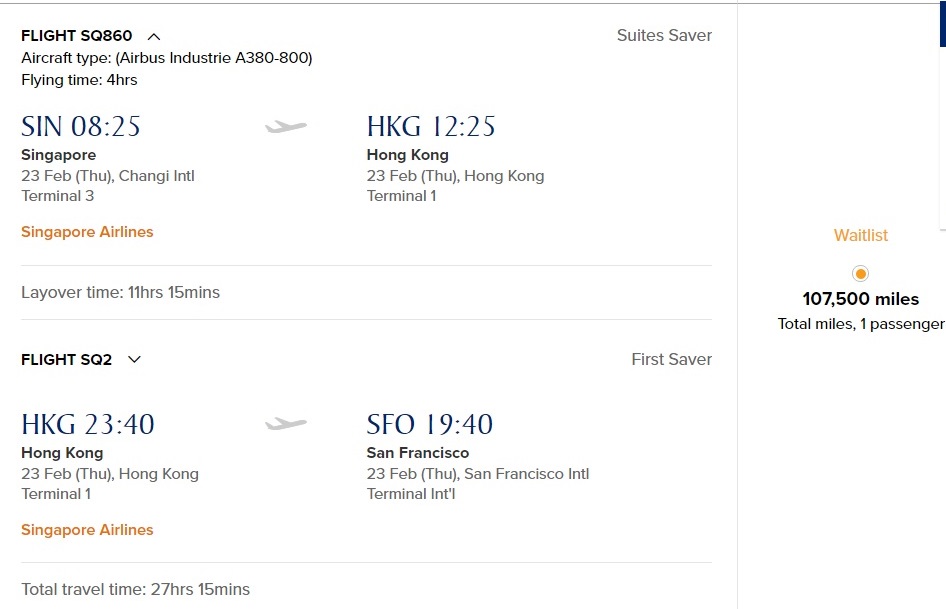
I’ve read that waitlists often clear for flights that aren’t full (though not always), and in my experience a few months back, I found that to be accurate. I think I waitlisted 7 itineraries for my return to the US from Asia/Australia and 6 of those cleared. There wasn’t a clear rhyme or reason on this — the first one cleared less than a week after placing the flight on waitlist (and about 5 weeks before departure). Then about 3 weeks, 2 weeks, and a few days before departure the rest of them cleared (except for one itinerary I waitlisted SIN-FRA-NYC — but in the end I didn’t want/need that one). For more tips on clearing the waitlist, see this post.
6) Add stopovers to an award for $100 each
After waitlisting those awards above, I realized that (at the time), it wasn’t many more miles to book an award from Australia to the West Coast of the US than it was from Singapore to the West Coast. The only trouble was that I needed a stopover in Singapore. Thankfully, Singapore allows you to book stopovers for $100 each. You can’t do this online — you have to make your booking via the call center. In my case, I flew SYD-SIN, stopover for $100, then SIN-HKG-SFO. If I had wanted a stopover in Hong Kong, I could have added that for another $100. That’s not a bad deal!
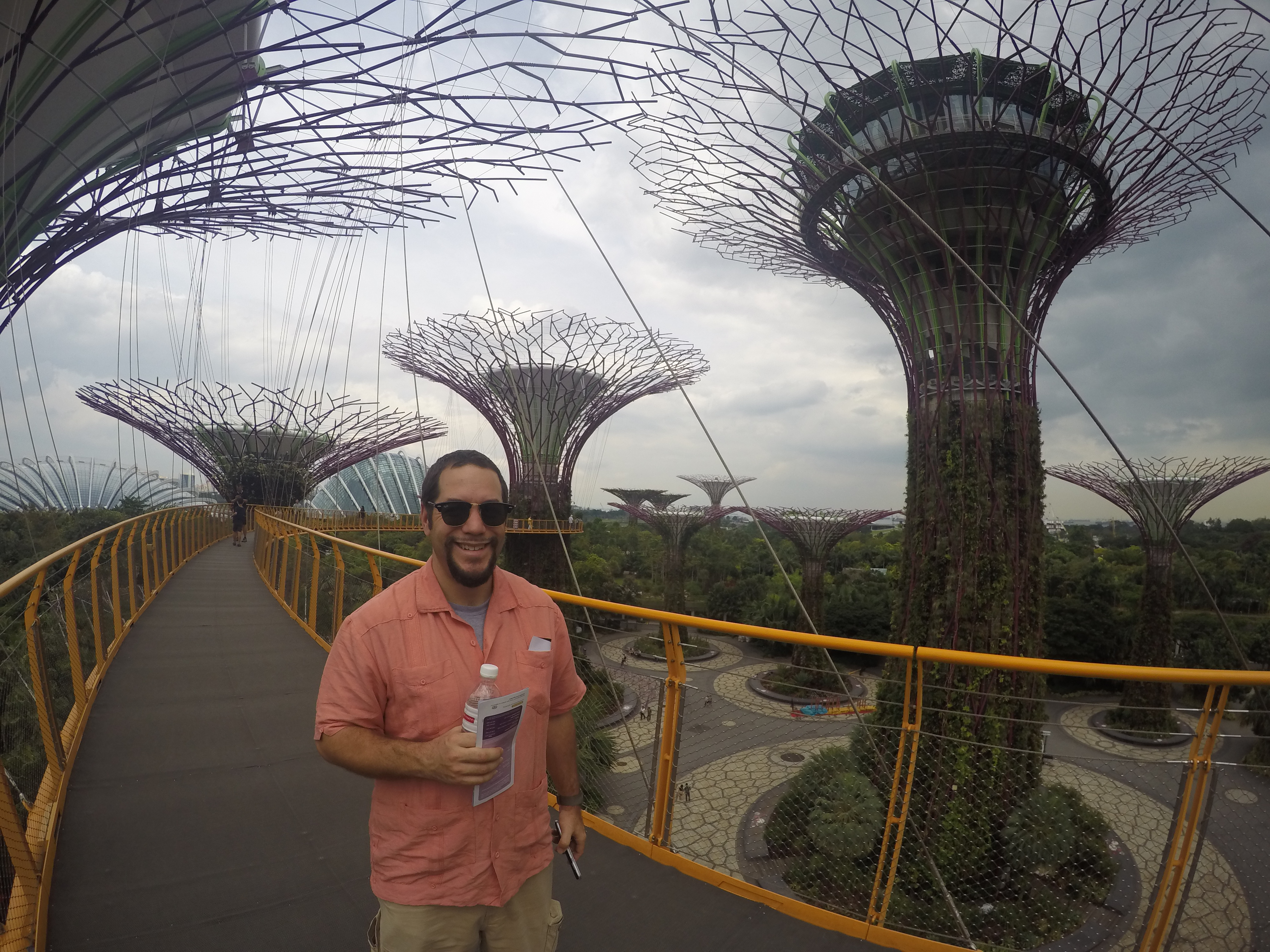
Things I dislike about Singapore Airlines
1) You have to call

While you can very easily book or waitlist simple Singapore Airlines awards online, you have to call to book all partner awards or anything with a stopover. I generally prefer booking online over making a phone call for a number of reasons. First, I just don’t love making phone calls (who does?). But more importantly, if I book something online I can see all of the parts and pieces and know that there aren’t any mistakes. However, that’s not an option for a lot of awards using Singapore miles.
The good news is that most call center agents are very competent. And in my case, each time I’ve had to call, the agents have proactively waived the phone booking fee since the award can’t be booked online. If you run into one that wants to charge you a phone booking fee, I would suggest politely asking if they can waive it or to hang up and call again.
2) Domestic itineraries have a max layover of 4 hours
Based on Singapore’s rules, a layover of more than 4 hours on a domestic flight is considered a stopover. A stopover is allowed on international itineraries (each additional stopover after the first will incur the $100 stopover fee). However, stopovers are not allowed on domestic itineraries — more than 4 hours and you’ll be charged the miles for 2 separate awards. That might not sound unreasonable, except that many itineraries from the East Coast of the US to Hawaii that are displayed on United.com have a layover of greater than 4 hours. United shows all results with a layover under 24 hours. The first itinerary I tried to book landed in Houston, TX around 8am and connected to a flight out of Houston around 12:30pm. As the layover was more than 4 hours, I was initially told that I’d have had to pay $100 per passenger to book that itinerary. I was later told that was incorrect and it could not be booked as a single award but would rather need to be two awards (one domestic for 12.5K and one to Hawaii at 17.5K). This probably isn’t much of an issue on most itineraries, but Hawaii is one area where you may run into issues. Many of the flights on which United opens saver space may not be bookable without this extra fee.
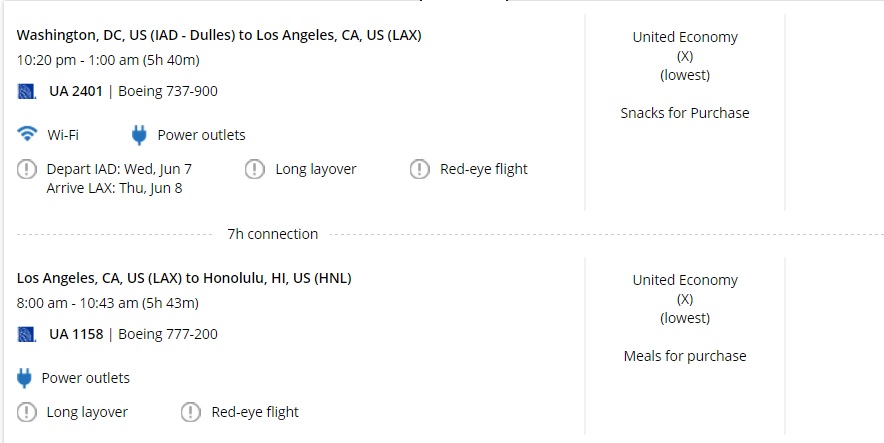
3) No backtracking on award tickets
Basically, you have to fly in one direction and in the more-or-less most direct route. You can’t fly from Chicago to New York to Hawaii — you’d have to fly west from Chicago and connect somewhere like Los Angeles or San Francisco. This hasn’t been an issue on most of my awards, but I could see where this could cause issues on intra-European itineraries.
Final Word
This is by no means a complete guide to Singapore Krisflyer — but rather a quick reminder of some of the positives and negatives of this popular frequent flyer program. There are surely more of each group and there are absolutely other great transfer partners that you should get to know. The nice thing about a partner like Singapore Krisflyer is that whether you are currently collecting Ultimate Rewards, Membership Rewards, Thank You points, or Starpoints, they can all become Singapore Krisflyer miles. That also means that a few signup bonuses from different issuers can come together to help you quickly amass what you need for a business or first class flight in comfort and style. To see current offers on cards that earn each of these transferable currencies, see our Best Offers page.


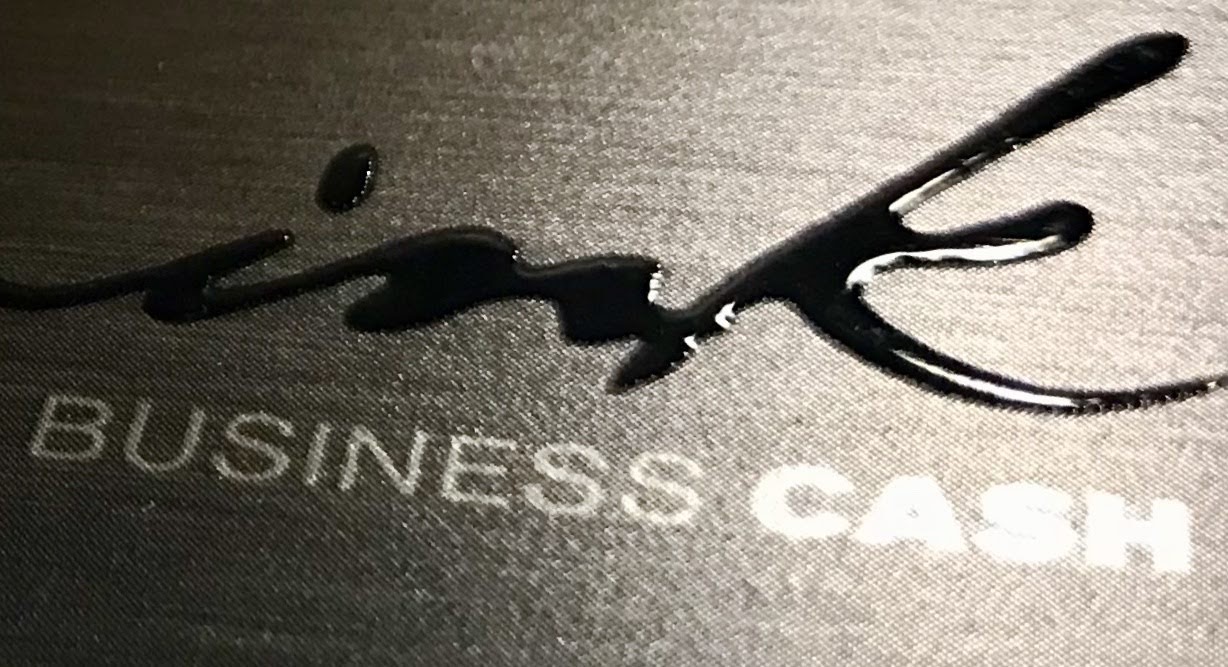
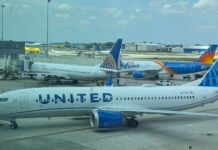
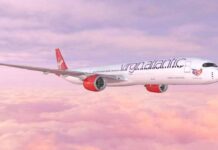
You can add/analyze one more feature— just got an email that family pooling is now allowed from children’s accounts to a parent’s. Probably not wide applicability but maybe for some
[…] on best uses of Singapore Krisflyer miles (and I’ve previously written a short summary of 6 things I love and 3 things I don’t about Singapore Krisflyer), but the short story is this: flying Singapore business and first class is pretty awesome. They […]
Nick- to confirm/verify re. the 3 year expiration, I believe that’s for when the miles are used not when the actual flight is flown. So you can book an award reservation (prior to expiration) for a future flight after that time, since the miles are pulled per the booking, not the travel.
[…] wrote a great post last year about Singapore Airlines that should help you find some value in the KrisFlyer […]
[…] round-trip business-class ticket to Hawaii or 2 round trip economy class tickets to paradise (using Singapore Krisflyer), that signup bonus starts to sound downright fantastic. And those are far from the only or most […]
Also the policy of miles expiring after 3 years (even if you add more miles to it; it starts from the day you transfer them) is one thing I don’t like about SQ. Makes it much more difficult to be flexible.
Hey Nick,
Thanks for the useful article! Like to check with you how long did it take for your waitlist to clear? Like to try the suite out for my 25th anniversary next Jan using UR points.
Thanks!
[…] is a really good post about Singapore KrisFlyer miles: 6 things I love and 3 things I don’t. Good refresher for me as I now have 160k of these miles across two accounts (and more may be […]
Very useful article, I’m going to fly domestic with Alaska Airlines. Can I get the mileage credited to my Singapore Airlines FF?
Helpful article. Between this and Korean Air Skypass Miles, it’s great to see lots of options for getting to Hawaii cheap. Question: Is it assumed that if you can find a flight on United’s website, you can book it with Singapore Airlines miles? It’s been awhile since I’ve flown business class, but I remember that Lufthansa only opened up Business class seats for partner airlines with little time to plan vs booking directly with Miles & More miles.
Hi Nick,
What was the average wait time when you called Krisflyer?
I read that all Krisflyer redemptions that fly on partner airlines like United require a phone call. I called Krisflyer several times, and I hung up after +30 mins hold times.
Do you know of Krisflyer phone numbers with lower hold times?
I’ve had to call Singapore a few times and haven’t had any issues with wait times. Was under 10 minutes every time. Maybe just bad luck? I have just called the general US number: +1 (800) 742-3333
It varies during different times of the day. Mornings and Evenings, 3-7 minutes. During the day, I have seen like 5-15 minutes, but not like 30 minutes
Maybe I called at a busy call time. I will try to call in off-peak hours.
Now the policy at Krisflyer is they don’t allow stopovers on one-way partner award bookings, period. I got thoroughly shut down on just this point, playing HUACA with various agents over a period of a month. Gary says something here with a different angle: “Singapore Airlines KrisFlyer stopovers are not permitted on itineraries entirely within one country, within the country of departure on an international ticket, on wholly intra-Europe awards, or on awards between the US, Canada, Puerto Rico, or US Virgin Islands.”
I should have noted that to my knowledge you can only add a stopover on an award that’s on Singapore metal. I don’t believe you can add a stopover on a partner award as you said. Then stopovers would always fit the definition you’re quoting from Gary.
Your write-up misses two of the biggest benefits to using SQ miles instead of UA miles to fly on UA metal:
1. 20,000 instead of 25,000 miles for domestic first each way
2. No last minute award ticketing fee.
Great points! That said, you can get around the close-in ticketing fee with United by booking more than 21 days out and changing within 24hrs. Didn’t think of domestic first as I don’t often consider it, but on a transcon that price could be very attractive. Thanks for sharing those.
Great write up, Nick
Thanks
Great write-up. Question. How can I ensure I get the 2 middle seats for the double bed? I plan on booking as soon as the date opens up but you can’t select your seats until after transferring points and booking the flight. I don’t want to be stuck with 2 aisle seats.
I think you can try to make a dummy cash booking and take a look at the seat map.